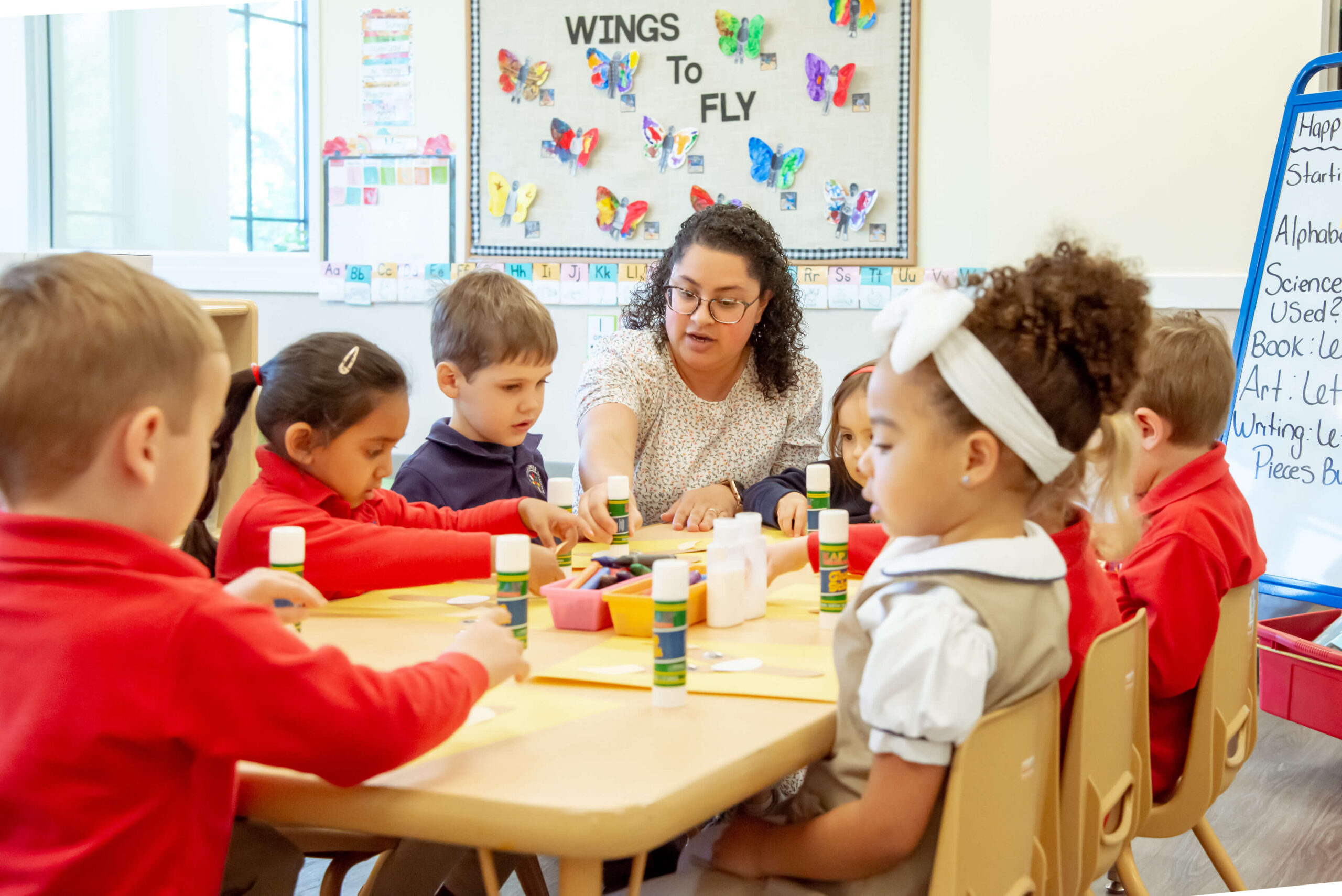Selecting the Perfect Preschool: Essential Tips for Parents
When choosing the perfect preschool for your little one, focus on educational philosophies like play-based learning or the Montessori method. Consider the location for convenience and community resources. Evaluate curriculum variety, teacher qualifications, and safety. Get involved to enrich the school community. Plan your budget thoughtfully and visit different preschools to observe the environment. These tips will help you make a well-informed decision for your child’s early education. Find the ideal fit that aligns with your values and your child’s needs. Remember, selecting a preschool is a significant step in your child’s development.
Key Takeaways
- Consider location, proximity to community resources.
- Evaluate curriculum variety, special education services.
- Verify teacher qualifications, ongoing training.
- Inspect facilities for safety, age-appropriate setup.
- Volunteer for involvement, school community connection.
Educational Philosophies

When choosing the perfect preschool for your child, understanding the different educational philosophies can help you make an informed decision that aligns with your values and goals.
Two prominent philosophies you may come across are play-based learning and the Montessori method.
Play-based learning emphasizes the importance of children’s play in their overall development. This philosophy believes that play is a child’s natural way of learning about the world around them. Through play, children can enhance their social skills, creativity, problem-solving abilities, and cognitive development. Preschools that follow a play-based approach often have open-ended activities, hands-on experiences, and a focus on imagination and exploration.
On the other hand, the Montessori method, developed by Maria Montessori, is centered around the idea of children as independent learners. Montessori classrooms are carefully prepared environments where children can choose from a variety of activities that are designed to promote self-directed learning. This approach emphasizes hands-on learning, individualized instruction, and a focus on practical life skills.
Location and Proximity
Consider the convenience and accessibility of the preschool’s location when making your decision. When evaluating potential preschools for your child, transportation options and community resources play an important role. Look for a location that offers ease of access, whether by public transportation or car, to guarantee a smooth daily drop-off and pick-up routine.
Neighborhood demographics can also impact your decision. Take into account the surrounding community and whether it aligns with your family’s values and beliefs. Additionally, consider the accessibility features of the preschool itself. Are there ramps or elevators for strollers or wheelchairs? Ensuring the location is inclusive and accommodating is vital for all families.
Being close to community resources like parks, libraries, or medical facilities can enrich your child’s preschool experience. These resources not only provide additional learning opportunities but also make your daily routines more convenient.
Curriculum and Programs

Exploring the curriculum and programs offered by a preschool is essential in ensuring the best educational fit for your child. Look for a preschool that provides a variety of enrichment programs tailored to different learning styles through differentiated instruction. These programs can help nurture your child’s individual strengths and areas for growth.
Additionally, inquire about any special education services available to support children with unique learning needs, ensuring that every child receives the attention they require to thrive.
When evaluating preschool options, consider the availability of extracurricular activities that can complement the core curriculum. These activities can enhance your child’s social skills, creativity, and physical development. A well-rounded program that includes both academic and non-academic activities can contribute to a more holistic educational experience.
Teacher Qualifications
Evaluating the qualifications of the teachers at a preschool is essential in determining the quality of education your child will receive. Look for educators who meet certification requirements and have a solid experience level working with young children. Teachers who hold relevant degrees or certifications in early childhood education are likely to have the necessary skills to support your child’s development effectively.
Additionally, inquire about the preschool’s approach to ongoing training and professional development for its staff. Teachers who participate in regular training sessions and seek opportunities to enhance their skills demonstrate a commitment to staying updated on best practices in early childhood education.
This continuous learning benefits your child as teachers bring fresh ideas and techniques into the classroom.
Facilities and Safety
As you continue your search for the perfect preschool, ensuring that the facilities are safe and well-equipped is vital for your child’s overall well-being and learning experience. When visiting potential preschools, pay close attention to the security measures in place. Look for secure entry and exit points, fenced outdoor play areas, and surveillance cameras to guarantee a safe environment for your child.
Additionally, inquire about the preschool’s emergency procedures. It’s essential that the staff is well-prepared to handle any unforeseen situations and that they’ve clear protocols for emergencies like fires, accidents, or lockdowns.
The facilities should also be equipped with age-appropriate materials and resources that promote a stimulating learning environment. Check if the classrooms are spacious, well-lit, and organized to support your child’s development. Outdoor play areas should be safe and engaging, encouraging physical activity and exploration.
Parental Involvement

Get ready to play an essential role in your child’s preschool experience. Active parent participation, including regular communication with teachers, can help create a supportive learning environment.
Volunteer opportunities aren’t just a way to help out but also a chance to bond with your child and their peers.
Active Parent Participation
To guarantee a successful preschool experience for your child, actively engaging in parent participation is key. Parent workshops provide valuable insights into your child’s development and learning. By attending these workshops, you can gain a deeper understanding of the curriculum and how to support your child’s growth at home.
Additionally, participating in classroom engagement activities allows you to witness firsthand how your child interacts with peers and teachers, fostering a sense of community and involvement in their educational journey.
Don’t miss out on family events and school projects; these opportunities are perfect for bonding with your child and getting involved in their preschool life. Family events create lasting memories and strengthen the connection between home and school.
Engaging in school projects not only shows your child that you value their education but also allows you to actively contribute to their learning experiences.
Communication With Teachers
Open and effective communication with your child’s teachers is vital for guaranteeing a successful preschool experience. Parent-teacher conferences are a valuable opportunity to discuss your child’s progress, strengths, and areas for growth. It’s essential to actively participate in these meetings, asking questions, sharing your observations, and working together to support your child’s development.
Maintaining open communication with teachers outside of scheduled conferences is also key. Don’t hesitate to reach out via email or phone if you have any concerns or insights to share. Building a strong partnership with your child’s teachers creates a supportive environment for your little one to thrive.
When engaging in discussions with teachers, remember to approach conversations with a positive and collaborative mindset. Share your child’s interests, routines, and any changes at home that may impact their behavior or learning. By working together and staying connected, you can make sure that your child receives the best possible care and education during their preschool years.
Volunteer Opportunities
Engaging in volunteer opportunities at your child’s preschool can greatly enhance your involvement in their early education journey. By actively participating in community engagement and fundraising events, you not only support the school but also become an integral part of the preschool’s vibrant community. Volunteering allows you to connect with other parents, teachers, and staff, fostering a sense of belonging and teamwork.
In addition to community engagement, volunteering for classroom assistance provides you with a firsthand look at your child’s daily activities and learning experiences. Whether you’re helping with art projects, reading stories, or organizing educational games, your presence can positively impact your child’s preschool experience.
Moreover, taking part in event planning showcases your organizational skills and creativity. Whether it’s organizing a school fundraiser, a holiday celebration, or a field trip, your involvement can enrich the preschool’s offerings and create memorable experiences for both your child and their peers.
Embrace volunteer opportunities as a way to actively engage in your child’s preschool journey and make a meaningful difference in their early education.
Cost and Financial Considerations

Considering the financial aspect of selecting a preschool is an important step in finding the perfect fit for your child. Before diving into the search, it’s essential to start with budget planning. Determine how much you can comfortably allocate towards preschool fees without straining your finances. Many preschools offer scholarship options or financial aid for families in need. It’s worth exploring these avenues to see if your child qualifies for assistance.
When evaluating preschools, inquire about their payment plans. Some schools may offer flexible payment options that can help ease the financial burden. Understanding the full cost breakdown, including any additional fees for extracurricular activities or supplies, can also help you make an informed decision.
Don’t hesitate to discuss your financial concerns with the preschool administrators. They may be able to provide guidance or additional resources to support you in making the right choice for your child’s early education.
Visiting and Observing
When selecting the perfect preschool, it’s time to schedule visits and observe the environment to guarantee it aligns with your child’s needs and your expectations. During your visit, pay attention to the parent interaction within the preschool. A warm and welcoming relationship between parents and teachers can foster a supportive community that benefits both the children and families involved. Engaged parents often indicate a school that values open communication and collaboration.
In addition to parent interaction, observe the classroom dynamics. Look for a well-organized space that’s both stimulating and safe for children to learn and play. The classroom should be equipped with age-appropriate materials and activities that encourage exploration and creativity. Watch how teachers interact with the children – they should be nurturing, attentive, and responsive to individual needs.
Frequently Asked Questions
Can Children With Allergies or Special Dietary Needs Be Accommodated?
When selecting a preschool, make sure they can accommodate allergy needs and special dietary requirements. Confirm the school’s policies, communication methods, and staff training. Your child’s safety and well-being are a top priority, so ask questions and discuss any concerns openly.
Are There Opportunities for Outdoor Play and Physical Activity?
You want to guarantee your child thrives, right? Look for a preschool with ample outdoor play areas. They offer crucial physical activity that boosts development, health, and happiness. Your little one deserves the best!
How Does the School Handle Discipline and Behavior Management?
When it comes to discipline and behavior management, your child’s school should focus on positive reinforcement and clear consequences. Effective communication and parent involvement are key in creating a supportive environment that helps children learn and grow.
Is There a Nurse or Medical Professional on Staff in Case of Emergencies?
Yes, there is a nurse or medical professional on staff at the preschool for emergencies. They are trained in first aid and will provide prompt emergency response if needed to guarantee the safety of all children.
Are There Any Extracurricular Activities or Enrichment Programs Offered?
You’ll be delighted to know that parent involvement is encouraged through extracurricular activities like music classes and art workshops. Your child can explore their creativity in various ways, fostering a well-rounded early education experience.
Conclusion
In summary, selecting the ideal preschool for your child is an important decision that requires careful consideration of factors such as educational philosophies, location, curriculum, teacher qualifications, facilities, parental involvement, cost, and visiting the school in person.
By taking the time to research and visit different preschools, you can guarantee that your child receives the best possible start to their educational journey. Remember, trust your instincts and choose a preschool that aligns with your values and priorities.
Happy preschool hunting!

Hey there! 👋 I’m a proud mom and passionate writer, sharing my parenting journey. 📝 Join me as I navigate the ups and downs of motherhood, offering tips, advice, and a sprinkle of humor along the way. 🌟







